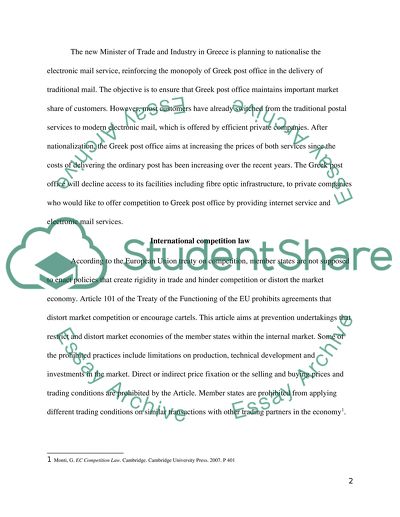Cite this document
(“Cometition law in international context Essay Example | Topics and Well Written Essays - 2750 words”, n.d.)
Retrieved from https://studentshare.org/law/1397968-cometition-law-in-international-context
Retrieved from https://studentshare.org/law/1397968-cometition-law-in-international-context
(Cometition Law in International Context Essay Example | Topics and Well Written Essays - 2750 Words)
https://studentshare.org/law/1397968-cometition-law-in-international-context.
https://studentshare.org/law/1397968-cometition-law-in-international-context.
“Cometition Law in International Context Essay Example | Topics and Well Written Essays - 2750 Words”, n.d. https://studentshare.org/law/1397968-cometition-law-in-international-context.


